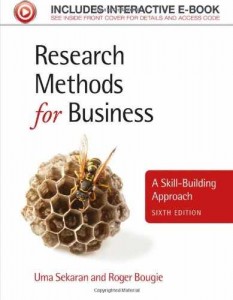CORE TRAINING COURSES
Courses covering all of our experience and knowledge base. Designed to give you the ability of scientific, practical thinking, and technical capabilities to fulfill your needs and to develop your answers to complicated questions.Therefore, we will be requesting a high-level of interaction and involvement from chief executives and managers to work together to write a new success story together – as a team.
Research Methods
The course designed to give you the ability of scientific thinking and research capabilities to fulfill your scientific research and to develop your dissertation. Perhaps the course will turn you into a researcher. At least, the course will give you a broader, more solid conception of the place of your degree/research within the varied spectrum of management science. It is presumed that your Quantitative Analysis course introduced you to the ‘how’ of several statistical analysis techniques. Research Methods will focus on the ‘when’ and ‘why’ of these techniques, and introduce additional quantitative methods.
You will gain confidence about the process of completing your dissertation.
giving you the ability to:
Understands and apply the scientific method of research and investigations.
Design and develop applied/theoretical forms of research process.
Develops an appropriate research question/problem.
Defends a hypotheses/proposition utilizing appropriate sources of support.
Understands and develop literature review process.
Understands and develop data collection and analysis techniques.
Generates and apply an appropriate statistical plan to support hypotheses/proposition.
Demonstrates dissertation/scholarly writing style following the current APA Style manual.
The course will move you toward fulfillment of the publication and dissertation requirements of postgraduate studies.
- Watch video lectures at my YouTube channel
- Research Methods Q&A, Problem Definition, Research Types
- Research Methods .. Characteristics vs Hallmarks
- Business Research Methods .. Literature Review Briefing.
- Online Book : RESEARCH METHODS FOR BUSINESS : A SKILL BUILDING APPROACH, 5TH ED


Strategic Management
To develop students’ capacity to think strategically about a company, its business position and how it can gain sustainable advantage. To give students hands-on experience in crafting business strategy, reasoning carefully about strategic options, using what-if analysis to evaluate action alternatives and making strategic decisions. Provide students with an understanding of the competitive and cooperative realities of the global business environment. Developing students’ powers of judgment regarding business strategic situations. Giving students’ abilities to express complex business analyses in a clear, concise and cogent manner, both orally and in writing. Including awareness of the importance of ethical principles, personal and company values and socially responsible business practices, covering practical areas of strategy to:
Understand the meaning of strategy, and Vocabulary of strategy
Understand the contribution of strategy to successful performance
Identify the framework for strategic analysis, using analytical models for strategic marketing decisions (SWOT, BCG, GE, Porter, Ansoff, …), Integrating results in company’s plan.
Identify alternative strategic options, and priorities at corporate, business and operational level
Develop students’ capacity to formulate Strategic management model(s)
Online Book : Strategic Management and Business Policy: Globalization, Innovation and Sustainability

Market Research Essentials
At the end of the course, students should have developed a number of marketing specific skills, areas of knowledge, and following learning outcomes:
To introduce the six steps of marketing research.
To understand the importance, necessity, and methodology of problem solving & definition.
To be able to differentiate and know the use of the various Research
Designs and Methodologies; exploratory and descriptive research.
To learn how to prepare data, analyze and report it.
Explain the fundamentals and use of Marketing Research.
Identify the use of exploratory and descriptive research.
Distinguish between primary and secondary data
Distinguish between qualitative and quantitative research
Illustrate the survey and observation methods
Distinguish between the comparative and non-comparative technique
Represent questionnaire design process
Recognize the sample size determination
Show how to collect data and analyze it.
Principles of Marketing
By fulfilling course requirements, students should have developed a number of specific skills, areas of knowledge, and following learning outcomes:
Develop and understanding of today’s global and local market place and the role that marketing plays in both that will give students a general background and introduction to the field of marketing.
Develop and understanding of the meaning of marketing, its components, which will enable students to comprehend and simulate important marketing processes.
Comprehend and analyze the factors affecting marketer’s decisions and the components of the marketing environment to enable students to take part in marketing decision –making.
Identify the importance of marketing and outline the marketing process.
Distinguish between different strategies for growth and downsizing.
Explain the factors that influence marketing environment.
State the phases of the marketing research process.
Analyze the strategic business units in the firm.
Analyze the fundamentals of the marketing strategy and program.
Analyze and criticize marketing decisions.
Design a project to link academic concepts with practical experience.
Collect and gather information from face to face interaction with executive officers or other external sources.
International Marketing
The course designed to give you the exposure to international marketing concepts, supported with cases from various industries and countries, giving you the ability to:
Introduction to international marketing
International marketing environment
Social & cultural issues
International marketing research and information systems
Analytical models & tools assessing international markets
Developing Marketing mix strategies
Integrating results in marketing plan
Ethical issues in international marketing
Management Fundamentals
The course designed to give you the ability of understand basic management concepts, learning fundamental management and business skills needed for today’s manager, covering the following main points:
The Environment of Management
Management functions; Planning, Organizing, Leading, Controlling
Productivity, competitiveness and strategy
Decision making & Theory
Organizational Control & Culture
Information Systems and Technology
Marketing Strategy
The course designed to give you the ability of scientific marketing thinking and strategy capabilities to fulfill your marketing position and plan, to develop your own marketing strategy, giving you the ability to:
Marketing & Strategy definitions
Strategic & marketing management process
Analytical models for strategic marketing decisions
(SWOT, BCG, GE, Porter, Ansoff,…)
Applying models on marketing mix
Integrating results in marketing plan
